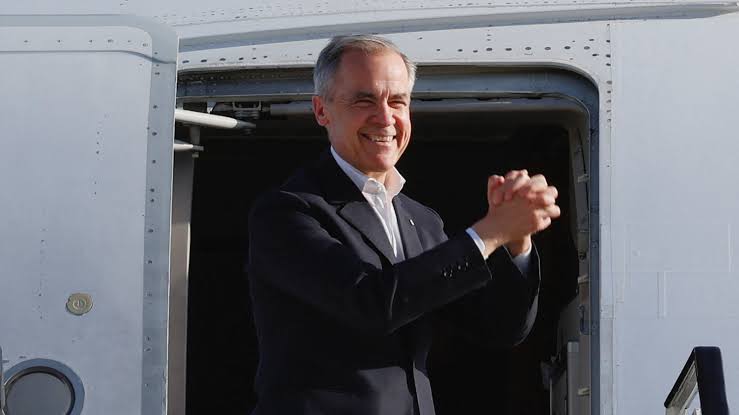Ottawa (Rajeev Sharma) : Mark Carney has led the Liberal Party to a narrow but decisive minority government win in Canada’s federal election, defeating Pierre Poilievre’s Conservatives in a campaign dominated by issues like affordability, tariffs, and threats from U.S. President Donald Trump.
CTV News declared the Liberals victorious late Monday night after projections showed they had won or were leading in 156 of the 343 ridings. Conservatives secured 144 seats, falling short once again of forming government. A party requires 172 seats for a majority.
This marks the fourth straight federal defeat for the Conservatives and cements a decade-long rule for the Liberals, who first came to power under Justin Trudeau in 2015.
Carney, Canada’s former top banker and a political newcomer, succeeded in turning the tide for the Liberals after taking over from an increasingly unpopular Trudeau in March. Highlighting his leadership during economic crises, including the 2008 financial crash and Brexit fallout, Carney convinced voters he was best positioned to confront affordability concerns and defend Canadian sovereignty against Trump’s aggressive rhetoric.
During the campaign’s final stretch, Trump’s threats about turning Canada into the “51st state” and imposing harsher tariffs triggered a surge of nationalism that favored Carney. Poilievre, who received praise from Trump allies like Elon Musk and Joe Rogan, struggled to shake concerns about his alignment with populist American politics.
“This is Canada and we decide what happens here,” Carney asserted during his campaign, sharply rebuking Trump’s remarks.
Carney comfortably won his Nepean riding in Ottawa, taking over from Liberal Chandra Arya, while Poilievre defended his Carleton seat next door but ultimately fell short nationally.
Despite leading in many rural areas and across the Prairies, Conservatives couldn’t match Liberal strength in Ontario, Quebec, and British Columbia. Smaller parties like the Bloc Québécois and NDP also lost ground, leaving Carney with the task of negotiating with opposition parties to advance his agenda in a divided Parliament.
Pollster Nik Nanos summarized the result: “Liberal votes were driven by the Carney personal brand and the fear of managing President Trump, while Conservative votes reflected a strong appetite for change.”
A record 7.3 million Canadians had already voted in advance polls, demonstrating the high stakes of this election.
Carney’s ascent has been swift. A Harvard and Oxford-educated economist, he previously served as Governor of the Bank of Canada and Bank of England before advising the Liberals under Trudeau. Despite his limited political experience, Carney emphasized competence over ideology: “Unlike Pierre Poilievre, I’ve managed budgets before. I’ve managed economies before. I’ve managed crises before.”
He now becomes the first Prime Minister from Canada’s northern territories and only the third born west of Ontario.
Carney’s immediate challenges will include confronting economic headwinds, managing Canada’s relationship with an unpredictable United States, and maintaining support in a minority Parliament.
Mark Carney Leads Liberals to Minority Victory Amid Rising Canadian Nationalism and Trump Tensions

